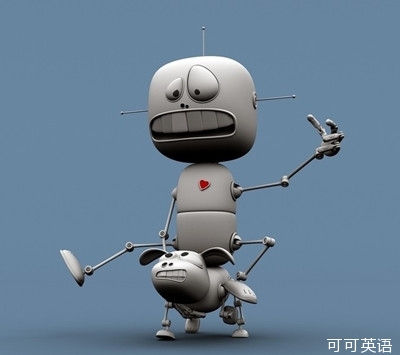Machines sharing information with other machines is more efficient than having one of us humans gumming up the works. But could a smart grid or precision farming, in which the machines inform each other and make subsequent decisions, significantly reduce energy use and, thus, greenhouse gas pollution?
比起人們總是把事情弄糟,機(jī)器之間如果共享信息,那么辦事效率會(huì)更高。然而,在智能電網(wǎng)和精準(zhǔn)農(nóng)業(yè)時(shí)代,機(jī)器之間互相通信、作下一步?jīng)Q定,這是否會(huì)極大地減少能源消耗和溫室氣體污染呢?
A new report from eclectic billionaire Richard Branson's Carbon War Room says yes. The report claims potential savings of nearly 20 percent of current global emissions, or more than 9 billion metric tons of carbon dioxide per year. The changes could come quickly too, with pollution down 1.5 billion metric tons by the end of the decade.

億萬富翁理查德·布蘭森的碳作戰(zhàn)室新發(fā)布的一項(xiàng)報(bào)告對(duì)這一觀點(diǎn)表示贊同。該報(bào)告稱:機(jī)器共享信息將使全球溫室氣體的排放減少近20%,目前全球每年的排放量超過90億噸。這些變化會(huì)很快來臨,在這個(gè)十年結(jié)束時(shí),排放的溫室氣體會(huì)下降到15億萬噸。
But what are we really talking about? First off, it's smart meters for home energy use that maximize efficiency. And building-wide systems that ensure the lights or air conditioning turn off when not needed. It's also smart transportation—planes, trains and automobiles that can talk to each other to more efficiently move goods and people. Finally, it's smart agriculture—for example, sensors in the ground that measure moisture or fertility and prevent farmers, or their automated proxies, from over-watering or applying too much fertilizer.
但是我們真正的主題是什么呢?首先是管理家庭供能的智能儀表,它能最大限度地提高效率。健全的系統(tǒng)會(huì)確保電燈和空調(diào)在不需要時(shí)自動(dòng)關(guān)掉。其次是智能交通——飛機(jī),火車和汽車如果能自由交流的話,會(huì)更高效地輸送貨物和乘客。最后是智能農(nóng)業(yè)——例如,用來測量濕度或者土壤肥力的地面?zhèn)鞲衅鳎芊乐罐r(nóng)民們過度澆水或者過度施肥。
Many barriers exist to ubiquitous machine-to-machine communication, not least of which is a lack of shared standards. But enabling the machine conversation might ease our climate change crisis.
將機(jī)器與機(jī)器通信普及到現(xiàn)實(shí)生活中還存在許多障礙,尤其體現(xiàn)在缺少一個(gè)公認(rèn)的標(biāo)準(zhǔn)。但讓機(jī)器對(duì)話可能會(huì)緩解氣候變化危機(jī)。
原文譯文屬可可原創(chuàng),未經(jīng)允許請(qǐng)勿轉(zhuǎn)載!












